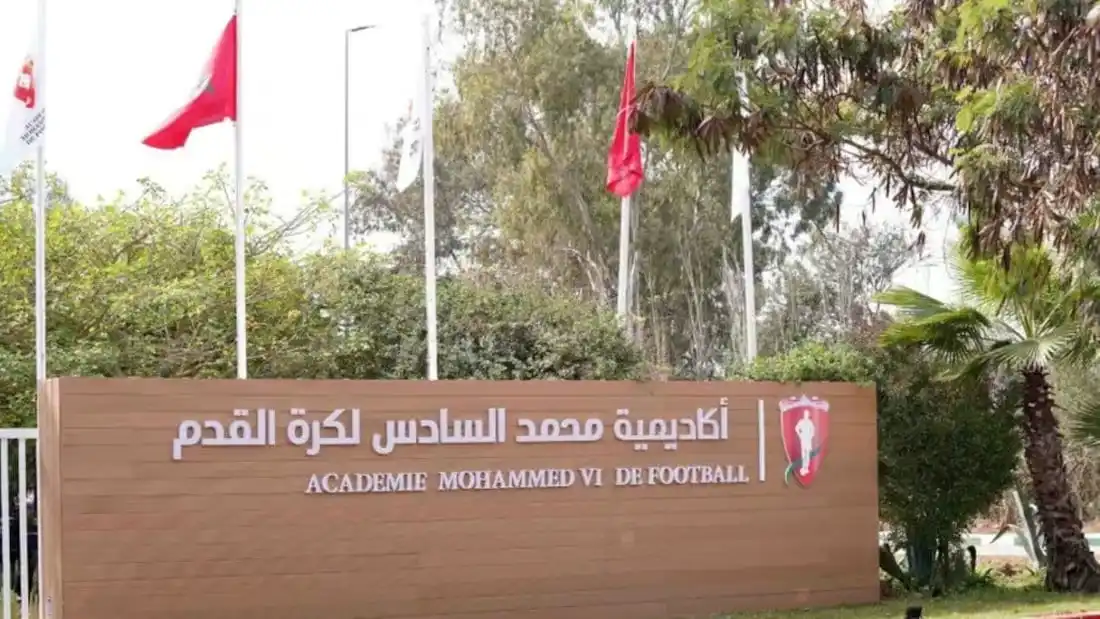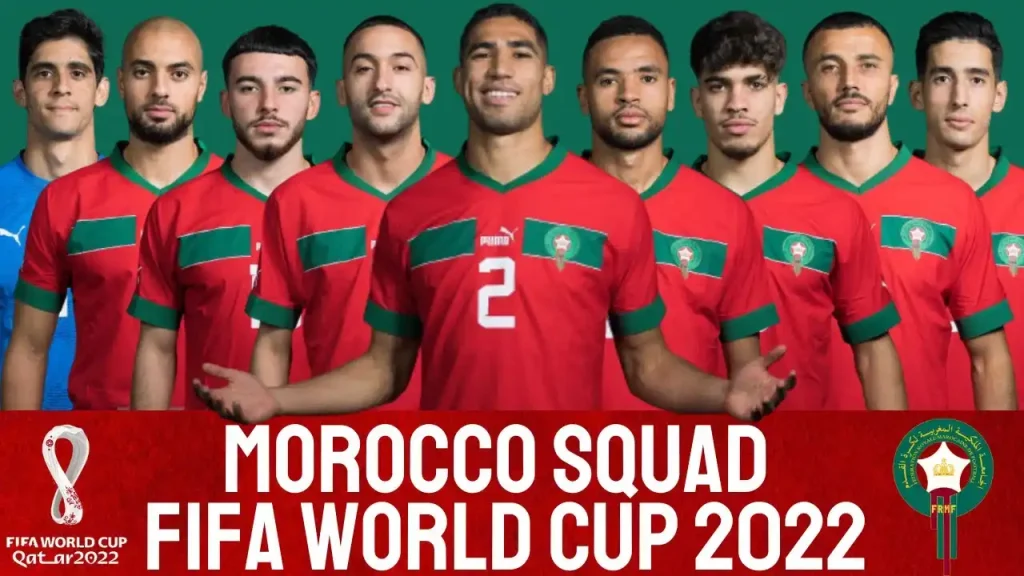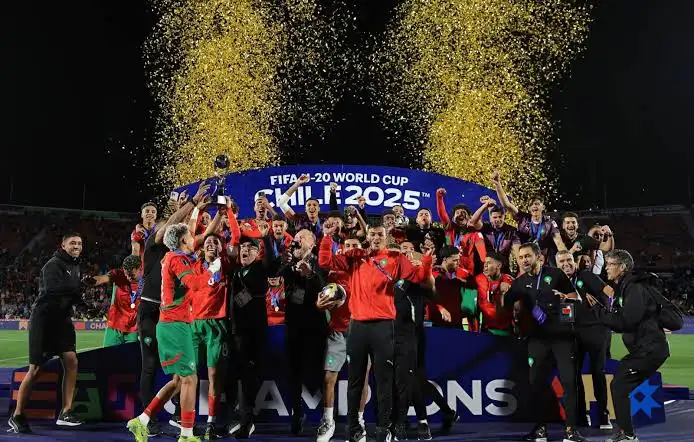How Morocco Became a great Football Powerhouse (world cup u20 last acheivemment)

Football Powerhouse; Okay, so you know how Morocco absolutely stunned everyone at the Qatar 2022 World Cup? Like, they didn’t just show up—they made it to the semifinals, becoming the first African and Arab team to ever get that far. Mind-blowing, right? But here’s the thing: this wasn’t some lucky fluke or overnight success story. It all started way back in 2008 with something called the Royal Message 2008 on Football, which basically laid out the master plan for turning Moroccan football from “pretty good” to “holy cow, did you see that?!” Morocan football
I’ve been diving deep into how Morocco pulled this off, and honestly? It’s one of the best success stories in modern football. There are four main reasons why the Atlas Lions went from underdogs to giant-slayers, and trust me, it’s way more interesting than it sounds.
1. It Started with a Royal Game Plan (Yeah, Literally)
So picture this: October 2008, there’s this big National Sports Conference happening in Skhirat, and King Mohammed VI drops what’s basically the blueprint for Morocco’s football future. The Royal Message 2008 on Football wasn’t just some feel-good speech—it was a legit strategic document that said, “Hey, we need to get serious about this.”
The king made it clear that sports should be “a factor of social cohesion and regional and international influence.” Translation? Football isn’t just about winning games—it’s about bringing people together, giving kids something positive to focus on, and putting Morocco on the global map.
What I love about the Royal Message 2008 on Football is that it wasn’t all about creating superstar athletes. The message emphasized developing both elite sports AND getting regular people involved. The idea was that when you see Moroccan players competing at the highest levels, it inspires everyone else to get out there and play too. Pretty smart, right?
But here’s what makes it even cooler: the message also recognized that football could help keep young people away from dangerous stuff like extremism and illegal migration. It’s not just a game—it’s a tool for building a better society. And unlike a lot of political promises, this one actually got backed up with real action and real money.
Fast forward to 2025, and Morocco’s U-20 team just won the World Cup. Coaches and federation officials keep pointing back to the Royal Message 2008 on Football as where it all began. That’s 17 years of consistent effort paying off. Not many countries have that kind of patience and follow-through, you know?
2. They Built a Football Factory (And It’s Actually Amazing)
Football Powerhouse; Alright, so you can’t just say “we’re gonna be awesome at football” and expect it to happen. You need the infrastructure. Enter the Mohammed VI Football Academy, which opened its doors in 2009 and officially launched in 2010.
This place is insane. We’re talking about a $13-16 million facility that’s basically Hogwarts for footballers. It sits on 18 hectares near Rabat, and get this—it’s not just about kicking a ball around. The Mohammed VI Football Academy combines serious football training with actual education. Like, the kids leave with bachelor’s degrees. How cool is that?
The academy takes in about 50-60 students aged 13 to 18, and they don’t have to choose between hitting the books and perfecting their free kicks. There are ten classrooms, language labs, computer science facilities—the whole academic setup is legit, backed by Morocco’s Ministry of Education.
But let’s talk about the football side because WOW. Four FIFA-standard stadiums. Specialized goalkeeper training areas. Medical facilities. Residential buildings designed like a traditional Moroccan village to keep students connected to their culture. It’s like someone asked, “What would the perfect football development center look like?” and then actually built it.
And here’s where it gets real: Remember Morocco’s incredible run at Qatar 2022? Players like Nayef Aguerd, Azzedine Ounahi, and Youssef En-Nesyri all trained at the Mohammed VI Football Academy. That U-20 World Cup winning squad I mentioned? Four of those players came from this academy. This isn’t some theoretical project—it’s a proven talent factory that’s churning out world-class players.
Coach Tarik El Khazri calls it “the official gateway to accessing the world of high-level professional football,” and honestly, he’s not exaggerating. The academy embodies everything the Royal Message 2008 on Football talked about—it’s holistic, it’s world-class, and it’s producing results.

Football Powerhouse
3. They Didn’t Just Build One Fancy Facility—They Upgraded Everything
Here’s where Morocco really went all-in. They didn’t just build the Mohammed VI Football Academy and call it a day. Nope, they looked at the Royal Message 2008 on Football and said, “We need world-class facilities everywhere.”
So they built the Mohammed VI Complex and a bunch of other massive stadiums in Marrakech, Fez, Tangier, Agadir, and Rabat. These aren’t just football stadiums—they’re cutting-edge, multi-purpose venues with all the latest technology. You could host a World Cup match there tomorrow and it’d be perfect.
In 2019, they opened another Mohammed VI Football Complex near Rabat, and it’s genuinely one of the most modern training centers in Africa. The point was simple: Moroccan players shouldn’t have to go to Europe to train in world-class facilities. They can develop at home.
But wait, there’s more! (I sound like an infomercial, but seriously.) In 2018, they launched this crazy ambitious program to build 800 local pitches across Morocco. Not fancy stadiums—just quality local fields where kids can play. They’ve already completed hundreds, especially in rural areas.
Think about what that means. Some talented kid growing up in a small village now has access to a proper pitch. Before, that kid might never have been discovered. Now? They’ve got a shot. The Mohammed VI Complex and these local pitches work together—grassroots opportunity feeding into elite development. It’s brilliant.
4. Then They Proved It All Worked on the World’s Biggest Stage
Okay, so this is where the story gets really good. Everything I’ve talked about—the vision, the academy, the infrastructure—it all came together in Qatar 2022. And oh my goodness, what a tournament.
Morocco’s Sporting Achievement in Qatar 2022 wasn’t just impressive—it was historic. First African team to reach a World Cup semifinal. First Arab nation to do it. Let that sink in for a second.
But it’s not just about making the semifinals (though that’s incredible enough). It’s how they did it. Morocco beat Belgium, who were ranked 2nd in the world at the time. They knocked out Spain on penalties. They stunned Portugal 1-0 in the quarterfinals. And through all of this, they only conceded ONE goal from an opposition player the entire tournament. One! Their defense was absolutely ridiculous.
The Sporting Achievement in Qatar 2022 showcased players like Achraf Hakimi, Sofyan Amrabat, Hakim Ziyech, and Youssef En-Nesyri—many of whom benefited from the system created by the Mohammed VI Football Academy and the broader reforms. These guys weren’t just talented; they were tactically smart, mentally tough, and incredibly disciplined.
Manager Walid Regragui had them playing beautiful, organized football. But the players’ ability to execute complex game plans against football giants? That showed the quality of their development. You can’t fake that kind of composure under pressure.
And here’s what made it extra special and a Football Powerhouse: Morocco didn’t just represent Morocco. They carried the hopes of Africa and the entire Arab world. People were celebrating from Casablanca to Cairo, from Paris to Doha. Politicians across continents were congratulating them. It was bigger than football.
Plus, this success opened even more doors. Morocco’s co-hosting the 2030 World Cup with Spain and Portugal. They’re now a legitimate football power with serious influence across Africa and beyond.
How It All Connects (Because That’s the Beautiful Part)
What’s really cool about Morocco’s story is that none of these things worked alone. The Royal Message 2008 on Football gave them the vision and the policy framework. The Mohammed VI Football Academy created a center of excellence where talent could flourish. The infrastructure investments—like the Mohammed VI Complex and those 800 local pitches—made sure opportunity reached everyone. And the Sporting Achievement in Qatar 2022 proved that the whole system actually works.
And they’re not done! Morocco’s clubs have been dominating African competitions. The U-20 team just beat Brazil, Spain, France, and Argentina on their way to winning the 2025 World Cup. The talent pipeline is pumping.

But remember what the Royal Message 2008 on Football said? It’s not just about winning trophies. Football promotes social unity, keeps kids engaged in positive activities, contributes to education, and boosts Morocco’s international profile. It’s become a tool for diplomacy, economic growth, and national pride. That’s way bigger than just sports.
What Other Countries Can Learn From This
If you’re a football federation somewhere thinking, “We want what Morocco has,” here’s what worked for them:
Think long-term: The Royal Message 2008 on Football laid out a 15+ year plan. Success didn’t happen in three years—it took patience and commitment.
Invest in young players properly: The Mohammed VI Football Academy shows that creating top-tier development programs with education included produces real, sustainable results.
Build facilities at every level: Morocco invested everywhere—from neighborhood pitches to world-class stadiums. That way, no talented kid gets overlooked just because they live in the wrong place.
Don’t just focus on the pros: Following the Royal Message 2008 on Football, Morocco developed elite programs while also getting regular people playing. Both matter.
Education matters: The academy’s approach of combining sports and studies means players develop as complete people, not just athletes. If football doesn’t work out, they’ve got options.
Stay the course: Through coaching changes and tough losses, Morocco stuck to their plan. They gave their initiatives time to mature instead of panic-changing everything every two years.
What’s Next for Morocco?
Morocco’s Sporting Achievement in Qatar 2022 and their recent victories have set the bar pretty high, but they’re well-positioned for continued success. The Mohammed VI Football Academy keeps producing talented players, infrastructure development continues, and they’ve now got the experience of competing with the world’s best.
The 2030 World Cup is going to be huge. Morocco co-hosting will showcase everything they’ve accomplished since that pivotal Royal Message 2008 on Football. It’ll be a full-circle moment—from planning the transformation to hosting the world’s biggest sporting event.
What I love about Morocco’s story is that it proves any country can level up their football if they’re willing to plan strategically, invest consistently, and think beyond just the next tournament. The Royal Message 2008 on Football didn’t just change Moroccan football—it created a blueprint for how sports can transform society.
The Atlas Lions aren’t just winning games anymore—they’re inspiring an entire generation across Africa and the Arab world. And honestly? That’s even cooler than making a World Cup semifinal (though that’s pretty darn cool too).
Your Turn!
Football Powerhouse, So what do you think? Which part of Morocco’s football transformation impresses you most? Could your country use a similar approach? And where do you think the Atlas Lions go from here—are they just getting started, or was Qatar their peak? Drop your thoughts below—I’d love to hear what you think about this incredible journey!
P.S. – If you’re planning to visit Morocco, definitely try to catch a football match and see how Morocco became a Football Powerhouse. The atmosphere is absolutely electric, and now you’ll appreciate the deeper story behind what you’re watching!
Channels to know more about Morocco (Football Powerhouse)
| Channel | Thematic/Focus |
| Al Aoula | General entertainment, news, drama, variety shows, flagship national channel |
| 2M (Deux M) | General entertainment, news, Moroccan and international series, variety, movies |
| Arryadia | Sports – football, athletics, Olympic sports, sports news |
| Athaqafia | Culture – arts, literature, documentaries, cultural programs, heritage |
| Assadissa | Religious content – Quran recitation, Islamic programs, religious education |
| Al Maghribia | Entertainment and general programming for Moroccans abroad |
| Tamazight TV | Amazigh/Berber language and culture programming |
| Laayoune TV | Regional content focused on the southern regions of Morocco |
| Medi1TV | News, current affairs, economic programs (Arabic and French) |
| M24 | 24-hour news channel (launched by 2M) |